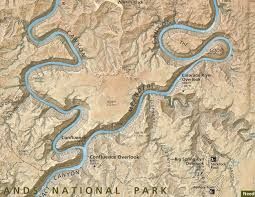 Humans tell stories. We are storytelling animal, homo fabulans, We know that other animals communicate, but it very well may be that we are the only species that tells stories. All humans tell stories ("You won't believe what happened to me while I was waiting in line at the store"). To varying degrees, we may all think of each of our lives as a story. The social psychologist Dan McAdams has conducted interviews over several decades with a range of individuals to understand how people see and understand their life. He concludes that in modern societies, by late adolescence to early adulthood, people begin to construct their personal past, their experience of the present, and an anticipated future into an internalized and evolving story of the self; this gives each one of us a sense of identity and coherence (1), According to the psychologist Jonathan Adler, we make meaning of our complicated existence by structuring our lives into stories (2). I stated earlier that to varying degrees we may all think of our life in terms of a story. I think that the degree to which a given individual does this varies tremendously. Novelists, who live in the world of plots, character development, and denouements, are more likely to think of their life in story terms. There is a quote that I have seen attributed both to Philip Roth and John Cheever: "My life is not my life; it is the story of my life." Jean-Paul Sartre wrote in his autobiography: "a man is always a teller of stories; he lives surrounded by his own stories and those of other people, he sees everything that happens to those other people, he sees everything that happens to him in terms of these stories and he tries to live his life as if he were recounting it" (3). For may part, and I admit that I am someone who lives in his head far too much, I find it useful to think about my life as a story. I think back to places I have lived, things I have done, instances and interactions, and I see some common patterns. I tend to loop back around or maintain a degrees of continuity with people, with places, with issues, and with ideas. For example, as I write this, a week ago I was in El Salvador. I served as a Peace Corps Volunteer there in the early 1970s, taught for half a year in a Salvadoran university in 2005, and have returned 20+ times since then, conducting research on youth and migration. For reasons that are not entirely clear to me, this small, wonderful country with far too much poverty and violence is part of my story, akin to a recurring character. I left full-time teaching 10 months ago. When I think about "What's next?"--I realize that I am embarking on another chapter in my life story. White there is utility in thinking of one's life in terms of a story, there are dangers. The map is not the terrain. Our interpretation of our our life events is built on our singular perception of those events. Someone who has felt misunderstood and discounted throughout life may look back from midlife and write: "As a child, I was alternately bullied and ignored, as my teachers and peers did not recognize my amazing abilities and gifts. Now as an adult, thanks entirely to my own efforts, I have been successful in many ways. I am sure that in the near future the world will realize and embrace my greatness." That way lies madness, or its first cousin, self-delusion. It can also be problematic if you think of your life as a relatively unchanging story, one in which all of the characters (including yourself) act in predictable ways. I think of the guy who found a note from his wife when he got home saying that she had left after 30 years of marriage. He exclaimed: "But we have a happy marriage!" The marriage was probably happy at some point, but people change, life changes, and the story needs to change with it. Staying with the example of marriage, a recent New York Times article included the same quote from several long-married individuals: "I've had at least three marriages. They've just all been with the same person" (4). In those cases, the couples realized that they were living in a changed and changing story. My life is not the story of my life, and the map is not the terrain. One needs a certain degree of self-awareness for considering one's life as a story to be a worthwhile perspective. But just as maps are valuable, showing possible journeys and lending an air of excitement to what comes next--as in the map of Canyonlands National Park above--so thinking of one's life as a story can yield both insight and energy for the road ahead. SOURCES 1. McAdams, Dan. The redemptive self: Stories Americans live by. New York: Oxford University Press, 2007. 2. Quoted in https://www.theatlantic.com/health/archive/2015/08/life-stories-narrative-psychology-redemption-mental-health/400796 3. Sartre, Jean-Paul. The Words. New York: Braziller, 1964. Quoted in Bruner, Jerome. Life as Narrative, Social Research, 2004, 71(4), pp. 691-710, p. 699. 4. From https://www.nytimes.com/2017/04/21/style/modern-love-to-stay-married-embrace-change.html?_r=0
0 Comments
Your comment will be posted after it is approved.
Leave a Reply. |
Storying the Human Experience
Yes, it's a grandiose title. But, as Flannery O'Connor once said, "A story is a way to say something that can't be said any other way." Archives
November 2019
Categories |

 RSS Feed
RSS Feed